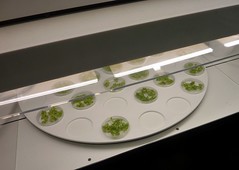 Stepping on toes everywhere in our circles, Ben Levinstein and me have a post at Practical Ethics about the limitations of in vitro meat for reducing animal suffering.
Stepping on toes everywhere in our circles, Ben Levinstein and me have a post at Practical Ethics about the limitations of in vitro meat for reducing animal suffering.
The basic argument is that while factory farming produces a lot of suffering, a post-industrial world would likely have very few lives of the involved species. It would be better if they had better lives and larger populations instead. So, at least in some views of consequentialism, the ethical good of in vitro meat is reduced from a clear win to possibly even a second best to humane farming.
An analogy can be made with horses, whose population has declined precipitiously from the pre-tractor, pre-car days. Current horses live (I guess) nicer lives than the more work-oriented horses of 1900, but they have much fewer lives. So the current 3 million horses in the US might have lives (say) twice as good as the 25 million horses in the 1920s: the total value has still declined. However, factory farmed animals may have lives that are not worth living, holding negative value. If we assume the about 50 billion chickens in in the world all have lives of value -1 each, then replacing them with in vitro meat would give make the world 50 billion units better. But this could also be achieved by making their lives one unit better (and why stop there? maybe they could get two units more). Whether it matters how many entities are experiencing depends on your approach, as does whether it is an extra value if there is a chicken species around rather than not.
Now, I am not too troubled by this since I think in vitro meat is also very good from a health perspective, a climate perspective, and an existential risk reduction perspective (it is good for space colonization and survival if sunlight is interrupted). But I think most people come to in vitro meat from an ethical angle. And given just that perspective, we should not be too complacent that in the future we will become postagricultural: it may take time, and it might actually not increase total wellfare as much as we expected.